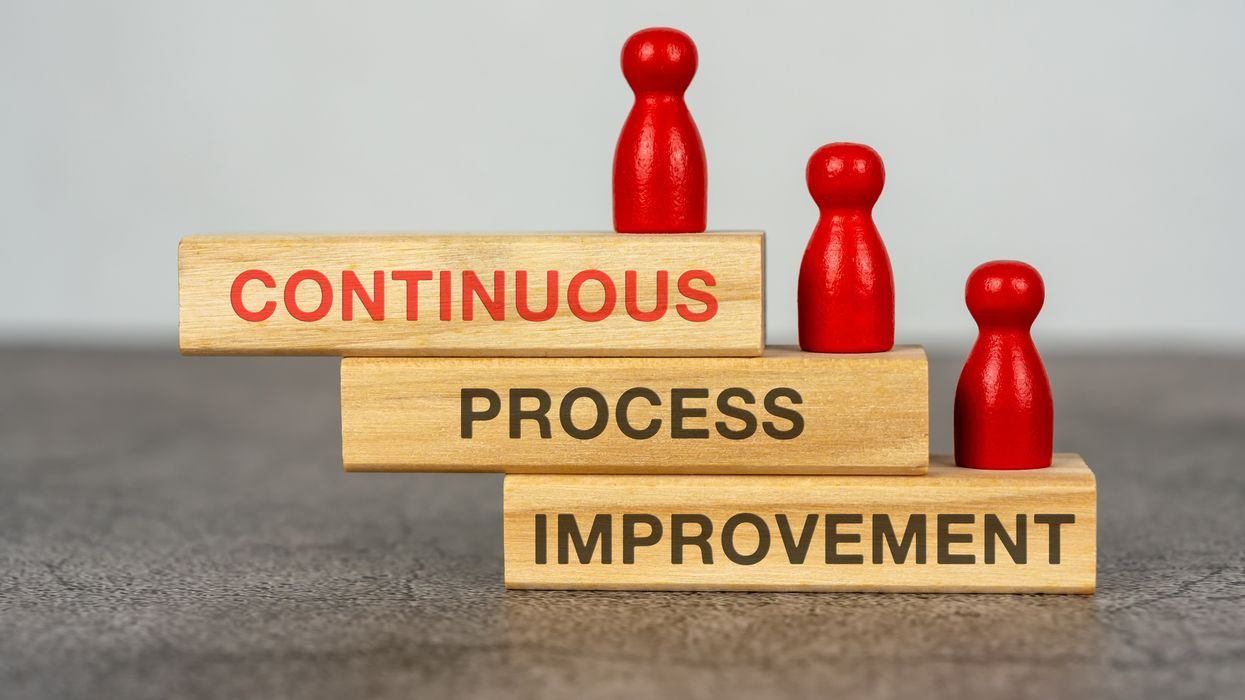Robinson is the principal of Robinson Consulting Group and a participant in the Columbus Foundation cohort engaging with the Columbus' Community Dialogue Policing initiative.
Corporate leaders, at least those who are successful, are always seeking ways to improve their businesses. Those seeking to improve social and civic leaders should take a page from corporate executive, particularly those who practice Lean Six Sigma.
LSS merges the efficiency-focused Lean principles developed by Toyota in the 1940s with the quality-centric Six Sigma strategies introduced by Motorola in the 1980s. This combination aims to eliminate non-value-adding activities in production processes. A key tool in this discipline is Kaizen, a Japanese concept meaning "change for the better," or continuous improvement. Rooted in the principle of small, incremental changes leading to significant improvements over time, Kaizen is instrumental in enhancing productivity and quality.
Typically, business leaders enable subject matter experts to engage in week-long workshops, fostering collaboration to develop process changes that yield cost savings or time efficiencies. Emphasizing teamwork, personal discipline and morale, Kaizen also advocates for quality circles and proactive improvement suggestions.
I am a firm believer in the broader applications of Kaizen, seeing great potential for its principles to be adopted by citizen engineers, extending its impact beyond the corporate world.
The need for citizen engineers is becoming increasingly important in our society. These individuals leverage their technical skills to address social and civic issues, bridging the gap and adapting to societal challenges. Citizen engineers embody the "people power" vital to democratic infrastructure and social uplift. Citizen engineers, equipped with conceptual practices found in Kaizen, can become helpful in effecting change in our nation and beyond. World-class corporations understand that a continuous improvement culture is necessary to contend with new competitors, innovations, disruptions and disruptors. Perhaps it is time that we apply this approach beyond distribution centers and back office functions to communities seeking to design a better future.
The application of Kaizen by citizen engineers for social innovation is rooted in the belief that all areas of life can improve. While Kaizen, in a corporate setting, targets productivity and efficiency, its application in social innovation aims to improve the quality of life in community development and enhance structures. For instance, they can address the challenges of sustainable urban development through the collaboration of entities that often gather together. By applying Kaizen, engineers gradually improve waste management systems, transportation, and energy usage, leading to greener cities.
Additionally, Kaizen could aid in strengthening education systems. Citizen engineers can implement technological solutions to enhance the learning environment incrementally. They can create interactive learning tools, develop systems for efficient knowledge transfer, or even design infrastructure that promotes learning. Over time, these minor improvements can significantly transform the education landscape.
I share in the optimism and power of Kaizen to tackle social inequalities. Citizen engineers can develop and implement solutions that gradually reduce disparities in health care, income and social services, from creating affordable medical devices to developing platforms for job opportunities.
However, Kaizen for social innovation has its challenges. It requires a shift in mindset from quick, radical changes to incremental, continuous improvement. The perspective shift demands patience, commitment, a long-term view of success and most importantly, sustainability. Furthermore, it necessitates understanding of societal issues and the community's involvement in the change process.
An important thread to any successful facilitator of a Kaizen is the spirit of curiosity and effective questioning. It unlocks information and awareness needed for authentic connection. Citizen engineers ought to be adequately trained and supported in using Kaizen with a people-first approach. They need to understand the Kaizen philosophy and methodology and how to apply it in a societal context. They should be encouraged to collaborate with communities, local governments and nonprofit organizations to identify areas that require improvement and implement relevant solutions. The goal is to be a catalyst for the change, simultaneously allowing those organizations to create and own the outcomes that were created.
Kaizen aligns with the ethos of “people power,” empowering individuals to effect change in their communities through continuous, incremental improvements. While it presents particular challenges, citizen engineers can use the Kaizen methodology to contribute significantly to civic and social society with the proper support and experiential environment.
An emergent application of Kaizen to social enterprise can be found in a cohort of community leaders and the Columbus Police Department. CPD's Community Dialogue Policing aims to foster better relationships between police and community members, focusing on open dialogue, understanding and mutual respect. The aim is that, over time, earnest dialogue, deep engagement and cooperative design will lead to incremental, consistent improvements, resulting in a positive shift in community-police relations, thus mirroring Kaizen's ethos of continuous improvement.
The future of social innovation lies in the hands of citizen engineers, a hybrid of two skill sets that have application in a multiplicity of arenas. “ The Medici Effect ” by Frans Johansson makes the argument that key innovations that have impacted our world arose as a result of interconnecting concepts, ideas and products. This cross-pollination of Kaizen framework and cultural awareness could be the answer for sustaining the change that our communities need. With the Kaizen methodology, citizen engineers can take these small steps over time to create a better community, nation and world for all.



















Trump & Hegseth gave Mark Kelly a huge 2028 gift